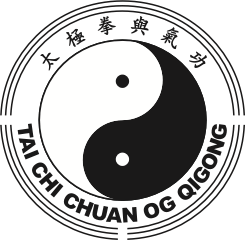The founding style of PTCC DK is Wudang Tai Chi Chuan.
Wudang Tai Chi Chuan was named so by Cheng Tin-hung, who never claimed to teach any one specific style of Tai Chi Chuan. Chang San-feng lived in the Wudang Mountains and thus the name Wudang is used to acknowledge the status of Chang San-feng as the founder of Tai Chi Chuan.
Cheng Tin-hung first learned Tai Chi Chuan from his uncle, Cheng Wing-kwong, who was one of only three “Inside the Door” students of Wu Jian-chuan. His uncle taught all over the South East Asia, especially Malaysia.
Cheng Wing-Kwong later brought in Qi Min-xuan from the Henan Province to teach his sons and nephews.
Qi Min-xuan originated from Wen County, Hebei Dao in the Henan Province. He had adopted the Buddhist name Zhi Meng, meaning “Shrewd Elder”. His father, Qi Ke-san, originally taught Qi, but his most important teacher was a Buddhist monk, Ching Yat (another Buddhist name, meaning “the Pure One”).
Ching Yat had helped the derelict soldier, Wang Lan-ting, who had sought refuge at the temple where Ching Yat lived after killing some Manchu.
Wang had learned from Chen Keng-yun, son of Chen Chang-xing, and later from Yang Lu-chan. Except of the fact that he was an Officer in the Imperial Manchu Guard and a top student under Yang, not much is known of Wang or whom he taught.
5 Elements of Wudang Tai Chi Chuan:
Practical Tai Chi Chuan
You may discover that the names Practical Tai Chi Chuan and Wudang Tai Chi Chuan are frequently used of the same style at this website. Practical Tai Chi Chuan International is the name that Dan Docherty has registered the system by. Chinese martial Arts journalists gave the style of Cheng Tin-hung the name “Practical Tai Chi Chuan”. The word “International” refers to the fact that the style is taught in many countries and to students from even more.
The name “Practical Tai Chi Chuan” refers to, that the style can be utilized practically.


